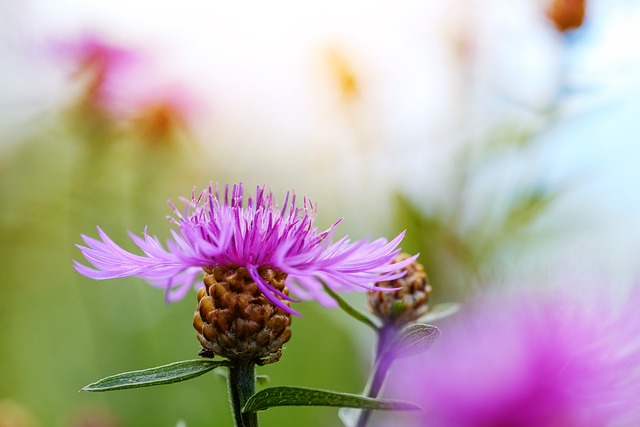THCA (tetrahydrocannabinolic acid) and CBD (cannabidiol), both derived from the Cannabis sativa plant, offer distinct benefits for individuals seeking improved sleep quality. THCA, which is non-psychoactive and a precursor to THC, engages with the endocannabinoid system by binding to CB1 and CB2 receptors, potentially enhancing sleep architecture and alleviating pain and anxiety, common disruptors of restful sleep. Preliminary research suggests that THCA’s interaction with these receptors may be more effective than CBD in regulating the sleep-wake cycle, making it a promising natural alternative for sleep improvement. While both compounds have their unique advantages, THCA’s influence on promoting deep REM sleep and its anti-inflammatory properties set it apart when compared to CBD for addressing sleep disturbances. It’s important for individuals to consult healthcare professionals before incorporating either compound into a sleep routine, as personal responses can vary significantly. Overall, the comparison between THCA versus CBD for sleep underscores their different mechanisms and highlights the importance of understanding these differences to make informed decisions about natural supplements for improving sleep health.
Discover the restorative potential of Indacloud thca flower, a natural compound offering promising benefits for those seeking a tranquil night’s sleep. In this comprehensive guide, we delve into the distinct advantages of THCA flower over CBD, elucidating how it interacts with your body’s endocannabinoid system to promote sound slumber. From understanding the science behind its sleep-inducing properties to the practicalities of incorporating it into your bedtime routine, this article provides a well-rounded examination of THCA vs CBD for sleep. Explore the terpene profiles, learn about evidence-based efficacy, and consider legal factors and user experiences. Whether you’re grappling with occasional sleeplessness or chronic sleep disorders, this article offers valuable insights to enhance your sleep hygiene practices safely and effectively. Join us as we navigate the pathways of THCA flower’s role in sleep health and look ahead to future research that may further substantiate its benefits.
- Unveiling THCA Flower: A Natural Solution for Restful Sleep
- THCA vs. CBD: Understanding the Differences and Their Impact on Sleep Quality
- The Science Behind THCA and Its Role in Promoting Sleep
- Potential Benefits of THCA Flower for Insomnia and Sleep Disorders
- How THCA Flower Interacts with the Endocannabinoid System for Better Rest
Unveiling THCA Flower: A Natural Solution for Restful Sleep
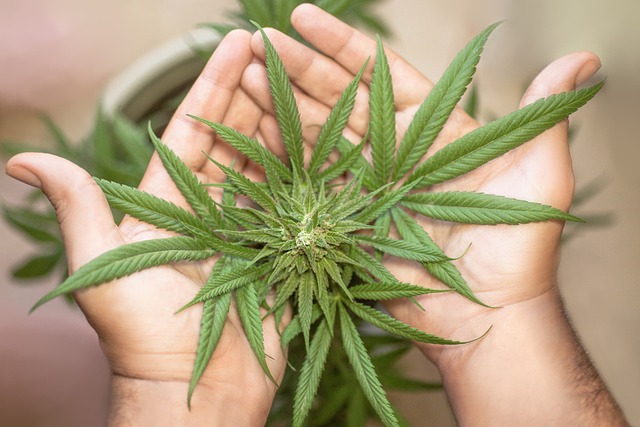
Unveiling THCA Flower as a Natural Solution for Restful Sleep, one finds a compelling alternative to traditional sleep aids. Tetrahydrocannabinolic acid (THCA) is the raw, non-psychoactive form of THC found in hemp and cannabis plants. Unlike its psychoactive counterpart, THCA interacts with the body’s endocannabinoid system without the ‘high’ associated with THC. For those seeking a natural approach to sleep enhancement, THCA flower has emerged as a potential remedy. Studies suggest that THCA may have anxiolytic and analgesic effects, which can contribute to more profound and uninterrupted sleep by alleviating pain and reducing anxiety—common culprits of sleepless nights.
When comparing THCA to CBD for sleep, it’s essential to understand the nuances between these two cannabinoids. While both are non-psychoactive and can support sleep health, their mechanisms differ. CBD is known for its calming and relaxing effects without causing drowsiness directly. On the other hand, THCA’s interaction with the CB1 and CB2 receptors may influence the body’s regulation of REM and deep sleep cycles more directly. Preliminary research indicates that THCA might be more potent in promoting restful sleep due to its inherent properties. However, individual experiences can vary, making it important to consult with healthcare professionals when integrating THCA flower into one’s bedtime routine for sleep. Users often report a sense of tranquility and ease in drifting off to sleep after consuming THCA flower, which underscores its potential as a natural aid for restful slumber.
THCA vs. CBD: Understanding the Differences and Their Impact on Sleep Quality

THCA, or tetrahydrocannabinolic acid, and CBD, or cannabidiol, are both prominent compounds found in the Cannabis sativa plant. While they share a similar origin, their effects on the human body differ significantly, particularly when it comes to sleep quality. THCA is the precursor to THC, the psychoactive component of cannabis, and has a different effect profile. Unlike THC, THCA does not produce psychoactive effects, but it may offer several therapeutic benefits, including potential analgesic, neuroprotectant, and anti-inflammatory properties.
In contrast, CBD is non-psychoactive and has garnered attention for its calming and relaxing effects without the ‘high’ associated with THC. Both compounds can influence sleep, but they do so in distinct ways. THCA is believed to promote more restorative stages of sleep, potentially aiding in deep REM sleep which is crucial for memory consolidation and emotional regulation. Its anti-inflammatory properties may also help alleviate pain and discomfort that can disrupt sleep patterns. On the other hand, CBD has been studied for its ability to reduce anxiety and stress, which are common obstacles to achieving high-quality sleep. It interacts with the body’s endocannabinoid system, influencing mood and mental clarity without impairing cognitive function. This can lead to a more restful night’s sleep, as well as a sense of overall well-being upon waking. When considering THCA vs CBD for sleep, it’s important to understand that both compounds offer unique benefits that may be tailored to individual needs and preferences. Users often experiment with both to determine which provides the most effective relief for their sleep challenges.
The Science Behind THCA and Its Role in Promoting Sleep
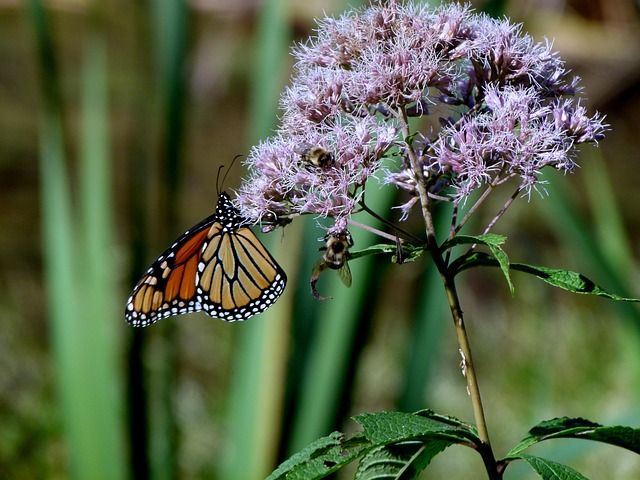
Tetrahydrocannabinolic acid (THCA) is a non-psychoactive cannabinoid found in the Cannabis sativa plant and is the precursor to the well-known compound THC. Recent scientific studies have shed light on THCA’s potential benefits, particularly its role in promoting sleep. Unlike its psychoactive counterpart THC, THCA does not induce intoxication, making it an attractive option for individuals seeking relief from insomnia or poor sleep quality without the mind-altering effects. The endocannabinoid system within the human body plays a crucial role in regulating various functions including sleep. THCA interacts with this system by binding to the CB1 and CB2 receptors, influencing sleep patterns. It has been observed that THCA may enhance the natural sleep-inducing chemical adenosine’s effect on brain receptors, leading to increased sedative properties and improved sleep architecture.
In contrast to CBD, another prominent cannabinoid, THCA possesses a more direct influence on the sleep-wake cycle. While both compounds have been associated with sleep benefits, THCA’s interaction with the endocannabinoid system is thought to be more potent in promoting restful sleep. Preliminary research suggests that THCA may help in alleviating sleep disturbances by modulating neurotransmitter activity and reducing inflammation, which can often disrupt sleep. This makes THCA a promising area of study for those experiencing sleep issues, particularly when comparing its effects to CBD for sleep-related concerns. As with any supplement or medication, individual responses may vary, and it is important for consumers to consult healthcare professionals before incorporating THCA into their wellness routines to ensure safe and effective use.
Potential Benefits of THCA Flower for Insomnia and Sleep Disorders
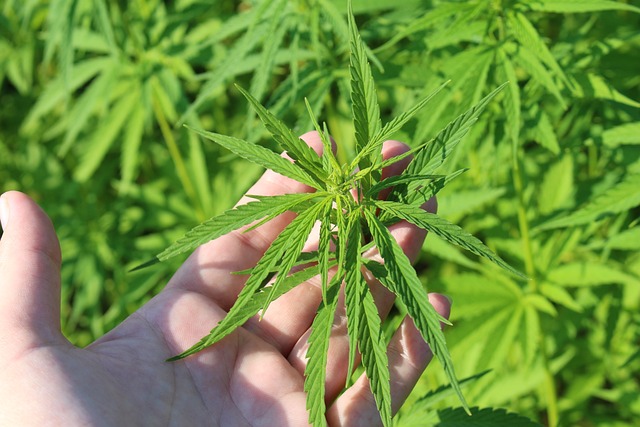
THCA, or tetrahydrocannabinolic acid, is a non-psychoactive compound found in the cannabis plant that has garnered attention for its potential therapeutic properties, particularly in relation to sleep disorders such as insomnia. Unlike its more famous counterpart, THC, THCA does not induce psychoactive effects, making it a safer option for individuals seeking relief from sleep disturbances without the high. Preliminary research suggests that THCA may have anxiolytic and analgesic effects, which can contribute to better sleep quality by alleviating pain and reducing anxiety—common factors that disrupt restful sleep.
When comparing THCA vs CBD for sleep, it’s important to note the distinct mechanisms of action each compound may have. While both THCA and CBD are non-psychoactive and possess beneficial properties for sleep, THCA’s potential effects are thought to be more pronounced due to its interaction with the body’s endocannabinoid system, particularly the CB1 and CB2 receptors. This interaction can influence the sleep-wake cycle, potentially leading to improved sleep patterns and duration. On the other hand, CBD has also been found to have a calming effect, which may help in reducing insomnia symptoms by promoting relaxation without sedation. Both compounds offer unique benefits for those suffering from sleep disorders, but THCA’s role in modulating the sleep cycle makes it a promising candidate for further investigation into its efficacy as a natural remedy for insomnia.
How THCA Flower Interacts with the Endocannabinoid System for Better Rest
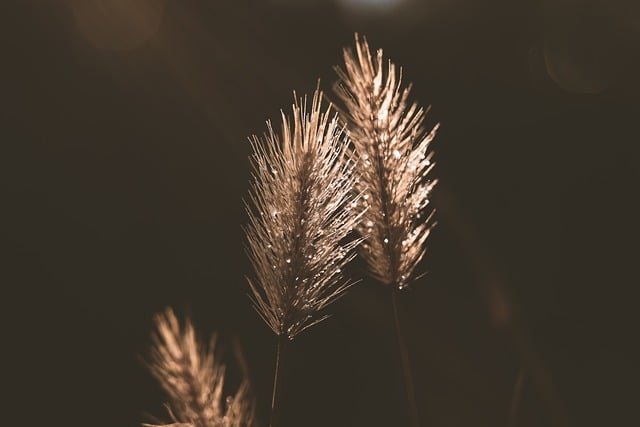
Cannabidiol (CBD) and Tetrahydrocannabinolic Acid (THCA) are two prominent cannabinoids found in the cannabis plant, each with unique interactions with our bodies. THCA, specifically, is non-psychoactive like CBD, making it a viable option for those seeking relaxation and better sleep without the ‘high’ associated with THC. The endocannabinoid system (ECS), a complex cell-signaling system identified in the early 1990s, plays a critical role in regulating a range of functions and processes, including sleep. This system is composed of three core components: endocannabinoids, receptors, and enzymes that manage various physiological activities, among them being the sleep-wake cycle.
THCA interacts with the ECS by binding primarily to the CB1 and CB2 receptors, which are abundant throughout the body, including in areas of the brain that regulate sleep. Unlike THC, which can activate the CB1 receptors leading to psychoactive effects, THCA appears to have a more subtle interaction with these receptors. This interaction may lead to modulating neurotransmitter release, reducing inflammation, and promoting homeostasis within the body. For individuals seeking better rest, THCA flower benefits include its potential to support a healthy sleep cycle by helping the body achieve and maintain deep, restorative sleep without altering consciousness. Studies suggest that THCA might be particularly effective for those who experience disruptions in their sleep patterns due to stress, anxiety, or chronic pain, offering an alternative to CBD when it comes to sleep-related issues.
THCA flower emerges as a promising natural aid for those seeking restful sleep, distinguished from its counterpart CBD by its more potent cannabinoid properties. The scientific community continues to explore the mechanisms through which THCA promotes sleep, revealing insights into its beneficial effects for those with insomnia and other sleep disorders. As evidenced in this article, incorporating THCA flower into one’s routine may offer significant improvements in sleep quality without the psychoactive effects associated with THC. For individuals exploring alternatives to traditional sleep aids, understanding the differences between THCA and CBD for sleep is crucial. This exploration of the science behind THCA’s role in promoting restful sleep underscores its potential as a valuable addition to sleep wellness regimens.
